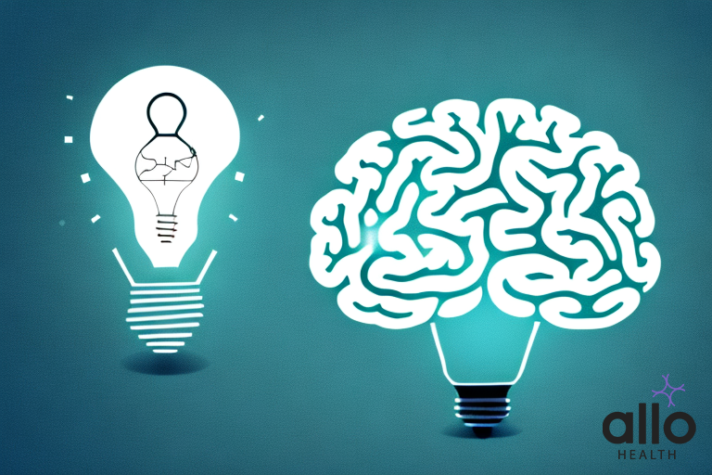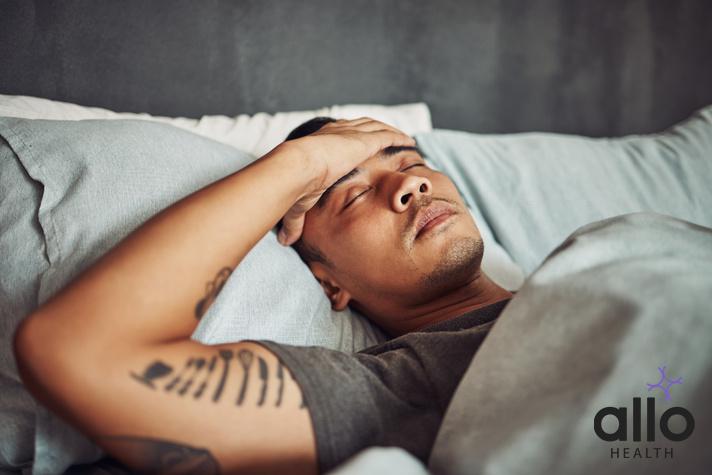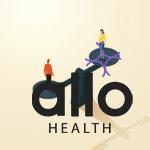Why Do Guys Feel Tired After Ejaculating?

"The following blog article provides general information and insights on various topics. However, it is important to note that the information presented is not intended as professional advice in any specific field or area. The content of this blog is for general educational and informational purposes only.
Book consultation
The content should not be interpreted as endorsement, recommendation, or guarantee of any product, service, or information mentioned. Readers are solely responsible for the decisions and actions they take based on the information provided in this blog. It is essential to exercise individual judgment, critical thinking, and personal responsibility when applying or implementing any information or suggestions discussed in the blog."
It’s a question that many guys have asked themselves at some point: why do they feel tired after they ejaculate? The truth is, there’s actually a lot of science behind this phenomenon. In this article, we’ll explore the physiology of ejaculation, the role of neurotransmitters in ejaculation and fatigue, and the connection between testosterone levels and post-ejaculatory fatigue. We’ll also take a deeper dive into the different stages of ejaculation and their effects on the body, as well as common myths about post-ejaculatory fatigue and tips for managing it. So put on your science hat and let’s dive in!
What Is The Biological Process Of Ejaculating?
Ejaculation is a complex biological process that involves the release of semen from the male reproductive system. The process can be divided into several stages:
- Arousal and Stimulation:
- Ejaculation typically begins with sexual arousal, which can result from various stimuli, such as physical touch, visual or auditory cues, or mental stimulation.
- Sexual arousal triggers the release of hormones, including dopamine, that stimulate the genital organs.
- Erection:
- The arousal phase leads to the release of nitric oxide, a chemical that relaxes the smooth muscles in the penis and allows blood to flow into the erectile tissues, causing an erection.
- The erectile tissues, called the corpora cavernosa, become engorged with blood, resulting in a firm and enlarged penis.
- Emission:
- Once a certain level of sexual stimulation is reached, the body enters the emission phase.
- During emission, the sperm and other fluids are transported from the testes, epididymis, and prostate gland to the urethra, which is a duct that runs through the penis.
- The seminal vesicles, located near the prostate, contribute a significant portion of the fluid that makes up semen.
- Ejaculation:
- The final stage is ejaculation, where rhythmic contractions of the pelvic muscles propel semen from the urethra out of the penis.
- The muscles surrounding the reproductive organs, including the bulbospongiosus and ischiocavernosus muscles, contract in a coordinated manner to force the semen out.
- The release of semen is accompanied by a feeling of intense pleasure, and it marks the climax of sexual arousal.
- Refractory Period:
- After ejaculation, most men experience a refractory period during which they are unable to achieve another erection or orgasm. The duration of this period varies among individuals and tends to increase with age.
- Semen Composition:
- Semen is a mixture of sperm and fluids from the seminal vesicles, prostate gland, and bulbourethral glands.
- The sperm, produced in the testes and matured in the epididymis, make up a small percentage of the semen volume.
- The seminal vesicles contribute fructose and other nutrients to nourish and energize the sperm, while the prostate gland adds an alkaline fluid to neutralize the acidity of the vaginal environment.
- Role of Nervous System:
- The entire process is under the control of the autonomic nervous system, with the sympathetic nervous system playing a key role in the emission phase, and the parasympathetic nervous system being involved in the ejaculation phase.
It’s important to note that the biological process of ejaculation is a normal and natural part of sexual function, and variations in the process can occur among individuals. If there are concerns about sexual health or reproductive function, it is advisable to consult with a healthcare professional.

The Physical And Psychological Effects Of Ejaculating
Ejaculation can have various physical and psychological effects on the individual. It’s important to note that these effects can vary from person to person, and factors such as overall health, frequency of ejaculation, and individual differences can play a role. Here are some of the physical and psychological effects of ejaculating:
Physical Effects:
- Release of Sexual Tension: Ejaculation is the physiological release of sexual tension, providing a sense of relief and satisfaction.
- Muscle Contractions: During ejaculation, there are rhythmic contractions of the pelvic muscles, including the bulbospongiosus and ischiocavernosus muscles, which contribute to the expulsion of semen.
- Hormonal Changes: Ejaculation triggers the release of various hormones, including oxytocin and prolactin. Oxytocin, often referred to as the “love hormone,” is associated with bonding and social connection, while prolactin is involved in the refractory period.
- Changes in Blood Flow: The sexual response involves changes in blood flow, particularly to the genital organs. During arousal and erection, there is increased blood flow to the penis, and during ejaculation, this blood flow is involved in the propulsion of semen.
- Temporary Increase in Heart Rate: Sexual activity, including ejaculation, can lead to a temporary increase in heart rate and blood pressure as part of the overall physiological response to arousal.
Psychological Effects:
- Sense of Pleasure and Relaxation: Ejaculation is often accompanied by a sense of pleasure and relaxation due to the release of endorphins, which are natural feel-good chemicals in the brain.
- Reduction in Stress: Sexual activity, including ejaculation, can have stress-reducing effects. The release of tension and the activation of the parasympathetic nervous system contribute to a feeling of calm and relaxation.
- Improved Mood: The endorphins released during sexual activity can contribute to an improved mood and a sense of well-being.
- Enhanced Sleep: For some individuals, sexual activity, especially before bedtime, can contribute to improved sleep quality. The relaxation and hormonal changes associated with ejaculation may play a role in promoting better sleep.
- Bonding and Intimacy: Sexual activity, including ejaculation, can strengthen emotional bonds and intimacy between partners. This is partly due to the release of oxytocin, which is associated with social bonding.
- Variability in Emotional Response: The emotional response to ejaculation can vary among individuals and across different circumstances. Factors such as the nature of the relationship, the context of the sexual activity, and individual psychological factors can influence the emotional experience.
It’s important to approach these effects with an understanding that individual experiences can differ. While many people may experience positive effects, it’s also possible for individuals to have varying emotional responses based on personal factors and context. Additionally, if there are concerns about sexual health or emotional well-being, it is advisable to consult with a healthcare professional or mental health professional for personalized guidance and support.
Why Do Guys Feel Tired After Ejaculating?
Feeling tired or experiencing a sense of fatigue after ejaculation is a common phenomenon for many individuals, particularly males. This post-ejaculatory fatigue can be attributed to a combination of physiological and neurochemical factors. Here are some key reasons why guys may feel tired after ejaculating:
Release of Neurotransmitters:
- During sexual arousal and orgasm, there is a release of various neurotransmitters and hormones, including dopamine, oxytocin, and prolactin.
- Dopamine is associated with pleasure and reward, oxytocin with bonding and social connection, and prolactin with sexual satisfaction and the refractory period.
- Prolactin levels, in particular, tend to increase significantly after ejaculation. Elevated prolactin levels are associated with a refractory period, during which it becomes difficult or impossible to achieve another erection and orgasm.
Role of Prolactin:
- Prolactin has a sedative or calming effect on the body. It is known to contribute to feelings of relaxation and drowsiness.
- The surge in prolactin levels after ejaculation may lead to a temporary decrease in arousal and an increase in the desire to rest or sleep.
Physical Exertion:
- The sexual response involves physical exertion, including muscular contractions and increased heart rate.
- The release of tension and the physical effort involved in sexual activity can contribute to a feeling of fatigue.
Energy Depletion:
- The process of sexual arousal and ejaculation can be energetically demanding on the body. The release of semen, muscle contractions, and increased physiological activity can lead to a temporary depletion of energy.
Parasympathetic Nervous System Activation:
- The sexual response is regulated by both the sympathetic and parasympathetic branches of the autonomic nervous system.
- Ejaculation triggers the activation of the parasympathetic nervous system, which is associated with rest and recovery. This activation can contribute to a feeling of relaxation and tiredness.
Hormonal Changes:
- Apart from prolactin, there are other hormonal changes associated with sexual activity. Testosterone levels, for example, may temporarily decrease after ejaculation.
- While the relationship between testosterone and post-ejaculatory fatigue is complex, some studies suggest a potential link between testosterone levels and the refractory period.
Individual Variability:
- It’s essential to note that individual responses to ejaculation can vary. Factors such as overall health, age, frequency of sexual activity, and emotional state can influence how an individual feels after ejaculation.
Cultural and Psychological Factors:
- Cultural and psychological factors may also play a role. In some cultures or belief systems, there may be associations between sexual activity and feelings of relaxation or sleepiness.
In summary, feeling tired after ejaculation is a multifaceted phenomenon influenced by a combination of neurochemical, hormonal, and physical factors. While it is a normal and common experience, individual variations exist, and not everyone may feel equally tired after sexual activity. If fatigue or changes in energy levels are a persistent concern, it may be beneficial to discuss these symptoms with a healthcare professional to rule out any underlying health concerns.
Most Asked Questions
-
Why do guys experience worn-out after ejaculating?
After ejaculation, the discharge of hormones like prolactin plays a key function. Prolactin induces relaxation and drowsiness, contributing to a post-ejaculatory desire to relaxation. Additionally, the parasympathetic frightened gadget, related to relaxation and healing, will become activated, selling a feel of tiredness.
-
Does bodily exertion at some point of sexual interest make a contribution to fatigue?
Yes, the physical exertion worried in sexual pastime, along with muscle contractions and an multiplied heart rate, can lead to a brief feeling of fatigue. The launch of hysteria and the electricity expended throughout the sexual response make contributions to this experience of bodily tiredness.
-
Are there hormonal adjustments answerable for publish-ejaculatory fatigue?
Indeed, hormonal shifts play a position. Prolactin tiers surge after ejaculation, and this hormone has a sedative effect, selling rest. While testosterone degrees may additionally quickly decrease, the relationship among testosterone and post-ejaculatory fatigue is complex and varies among individuals.
-
Is there a connection between electricity depletion and feeling tired after ejaculation?
Yes, the energetic demands of the sexual reaction make contributions to a transient depletion of energy. The release of semen, muscle contractions, and expanded physiological activity at some stage in arousal and orgasm can together cause a sense of tiredness.
-
Can cultural and mental elements affect submit-ejaculatory fatigue?
Absolutely. Cultural beliefs and mental factors can make a contribution to the belief of feeling tired after ejaculation. In a few cultures, there can be associations between sexual activity and a desire to relaxation or experience sleepiness, influencing an individual's submit-ejaculatory experience.







































